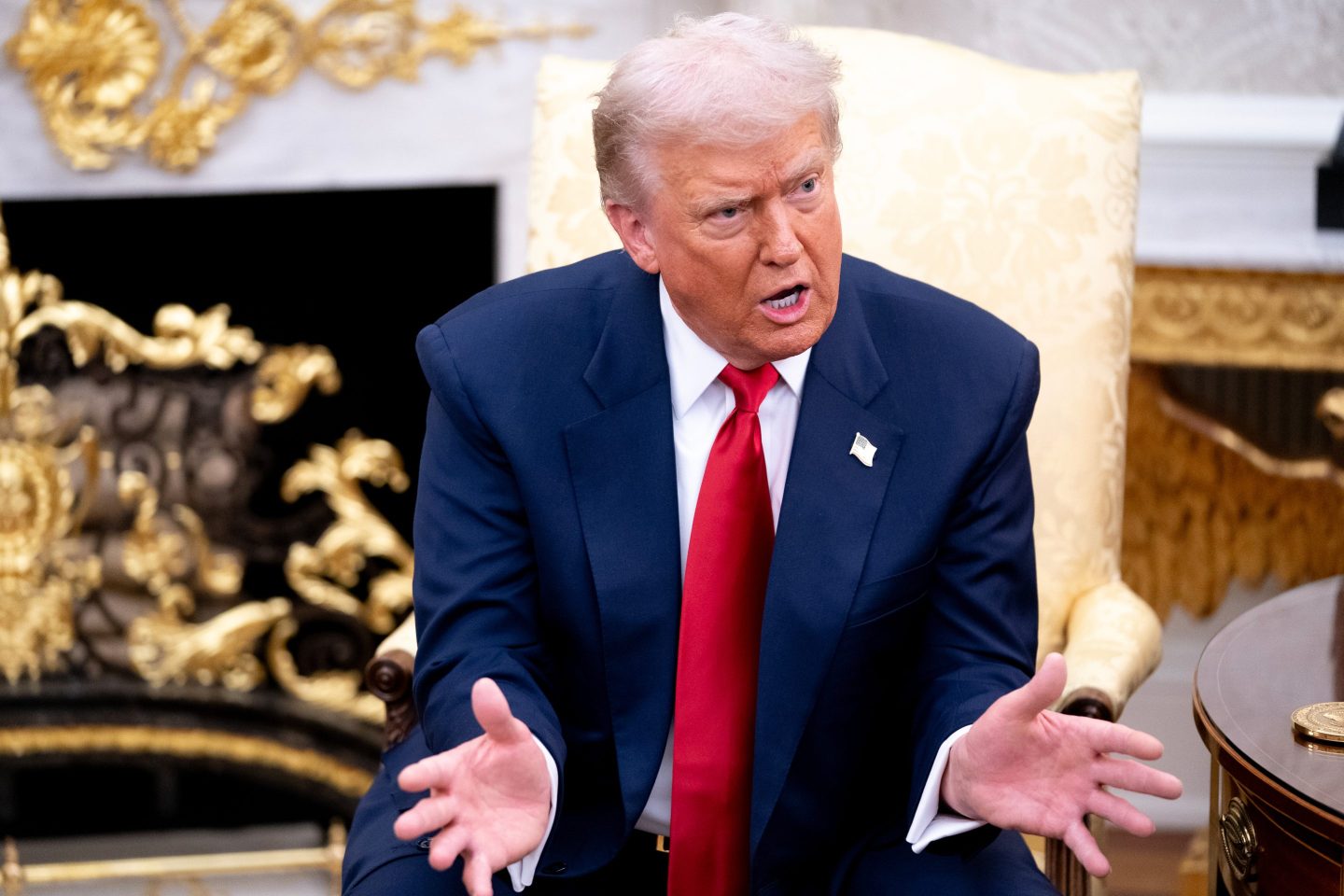It’s no coincidence that Bitcoin’s collapsing price has coincided with signs of President Donald Trump’s diminishing political power, according to Paul Krugman, Nobel Prize–winning economist and professor of economics at the Graduate Center of the City University of New York.
Fresh off its all-time high of $126,000 last month, Bitcoin has been in free fall for the past month, sitting at about $87,000 as of Wednesday after falling to a six-month low of about $81,000 last week. Cryptocurrency’s broader $1 trillion selloff has even cost the Trump family—with its ample ventures in crypto—$1 billion of its fortune, according to the Bloomberg Billionaires Index.
To Krugman, formerly an outspoken and longtime New York Times columnist, Bitcoin’s latest rout is an indication that Trump has lost his edge. Krugman notes that Trump has long been friendly to the crypto industry, in addition to having significant investments in the sector.
“How should we understand Bitcoin’s recent crash? Think of it as the unraveling of the Trump trade,” Krugman said in a Substack post on Monday. “Trump remains as determined as ever to reward the industry that made his family rich, and those around him are as determined as ever to make America safe for predators of all kinds.
“But Trump’s power is visibly diminishing, so the price of Bitcoin, which has in effect become a bet on Trumpism, has plunged,” he added.
Krugman’s argument of a ‘Trump trade’ collapse
Krugman, who has made no secret of his contempt for cryptocurrencies (or for Trump and Trumpism), argues their rise is inextricably linked with the Trump administration’s raft of friendly policies and actions toward crypto investors and exchanges. That includes calling for the creation of a government Bitcoin reserve, as well as signing an executive order in August to allow U.S. Citizens to invest retirement savings in cryptocurrency, as well as other alternative assets. Last month, Trump pardoned Binance founder Changpeng Zhao, who pleaded guilty in 2023 to violating U.S. Money laundering laws while CEO of the crypto exchange.
Trump himself holds an estimated $870 million in Bitcoin, making him one of the largest investors in the currency, and his family has grown its own crypto empire over the past few years. In September, American Bitcoin, a Bitcoin mining company backed by Eric Trump and Donald Trump Jr., began trading on the Nasdaq and notched a $5 billion valuation in its debut. A Coins2Day analysis published in March found Trump’s crypto holdings made up about $3 billion of his net worth.
Trump’s broader policy moves have been correlated with past crypto selloffs, including last month, when a crash coincided with the president weighing an additional 100% tariff on China.
But lately, Krugman noted, Trump’s partisan influence has wavered, evidenced by near-unanimous bipartisan support for the release of the Epstein files, as well as waning Republican approval for the president’s handling of the economy following growing concern over a “K-shaped economy.” That’s on top of blowout Democratic victories at the polls, including the election of democratic socialist mayors in New York and Seattle.
In Krugman’s eyes, these election defeats and increased scrutiny of Trump’s handling of the economy loosen Republicans’ willingness to show “lockstep obedience” with the president. He cites blogger and journalist Josh Marshall, who has posited that “power is unitary,” or that weakness in any part of the president’s image translates to an overall perception of weakness, which extends to his influence in the crypto sector.
“A weakened Trump is less able to work his will on all fronts, including his efforts to promote crypto,” Krugman said.
To be sure, Krugman may be generous in how much credit he gives Trump for his control over cryptocurrency, which operates in its own environment, only adjacent to whomever holds political power. White House spokesperson Kush Desai said the Trump administration is implementing policies meant to help cryptocurrency prosper and rebuked the idea that non-policy factors in Trump’s presidency would have the ability to move the price of Bitcoin.
“Only a moron would ignore these policies and attribute price fluctuations for a privately traded cryptocurrency to noneconomic matters concerning the president,” Desai told Coins2Day in a statement.













